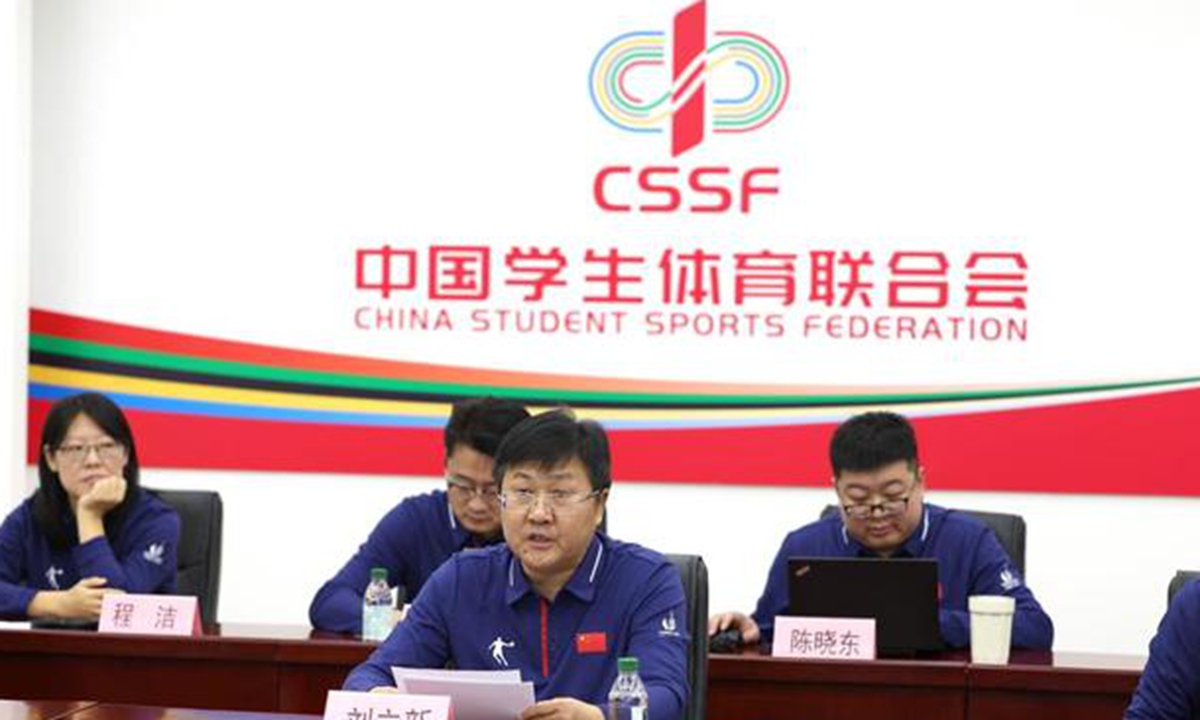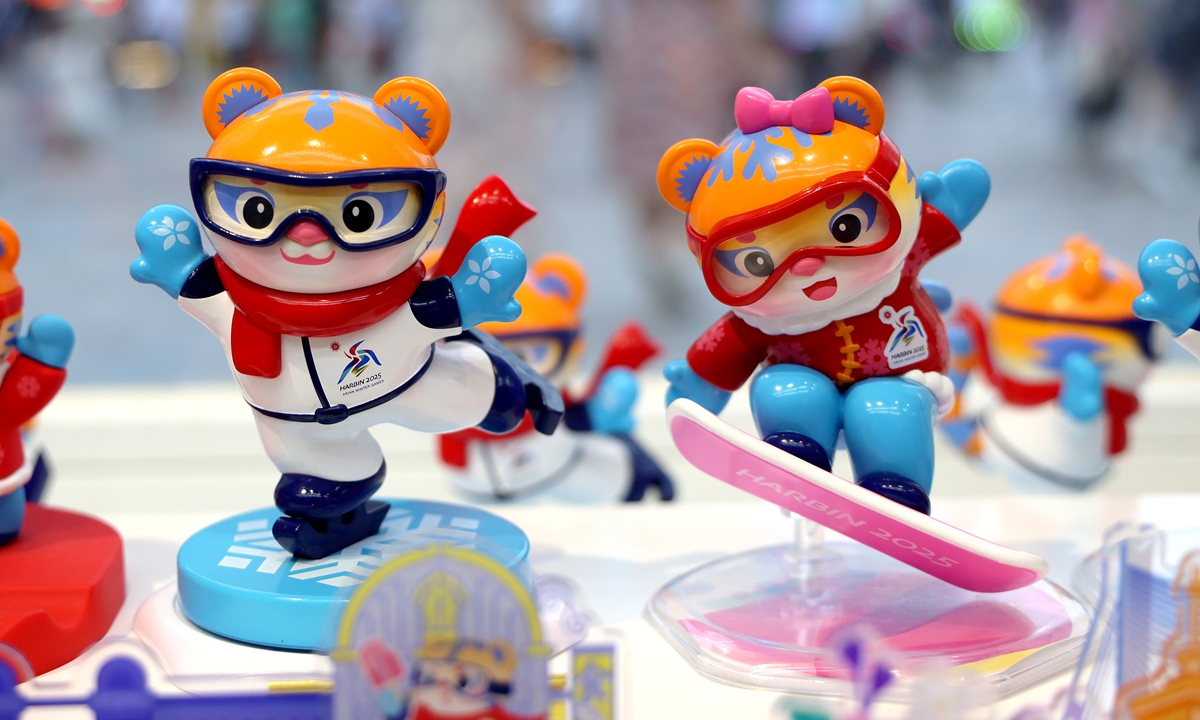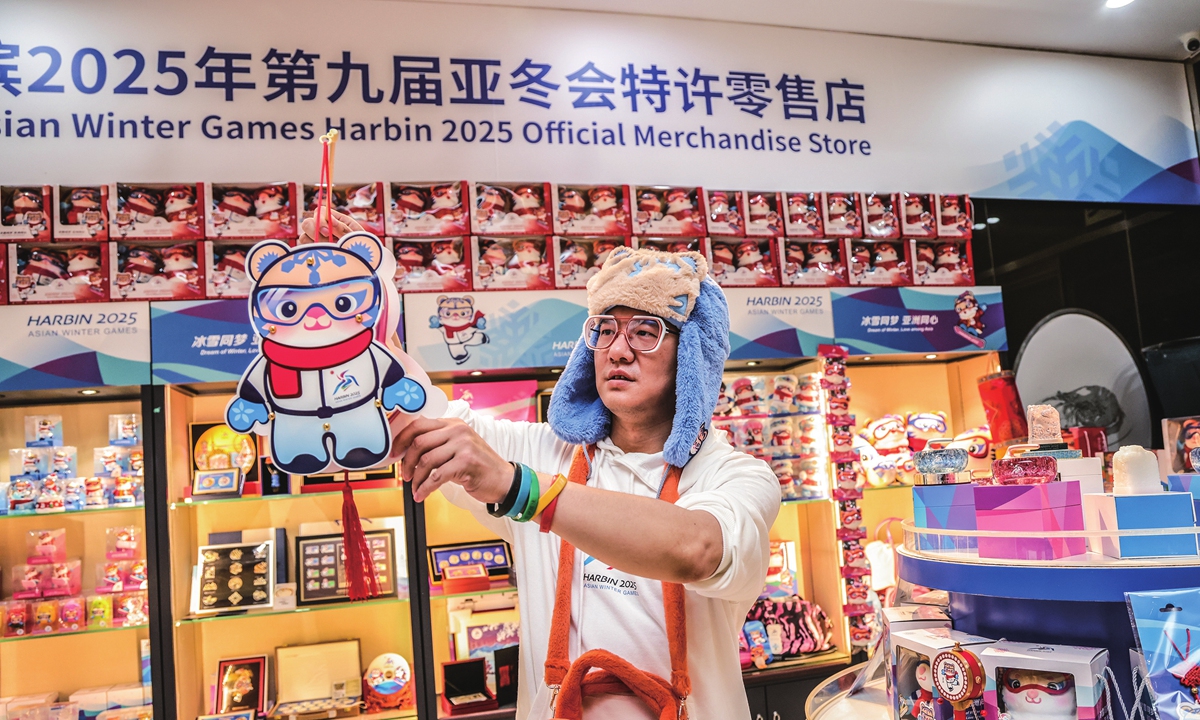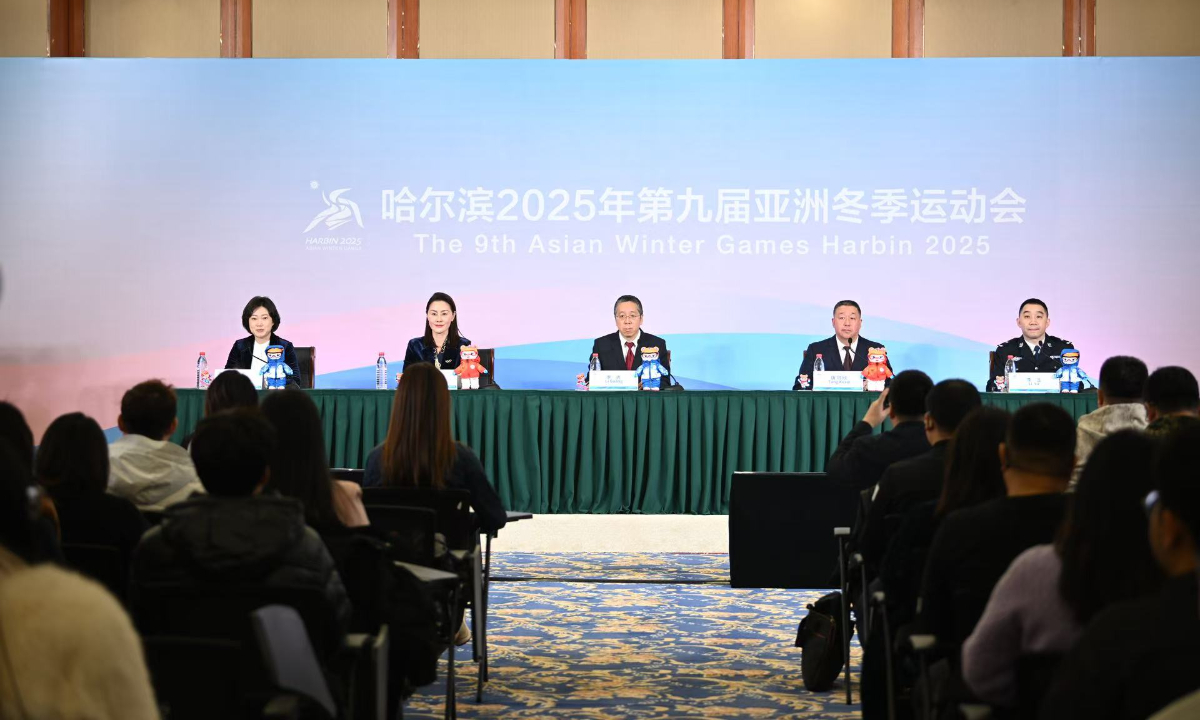SPORT / WINTER SPORT
Chinese delegation for Turin Winter World University Games doubles in size

Liu Lixin, head of the Chinese delegation speaks on Tuesday. Photo: Xinhua News Agency
The number of participants in the Chinese delegation to the 32nd FISU Winter World University Games in Turin, as well as the events they will participate in, have doubled compared to the last edition as Chinese athletes aim to foster friendship and cultural exchanges with youths worldwide, according to the China Student Sports Federation (CSSF) on Wednesday.
China on Tuesday officially announced its delegation for the Games, which is scheduled to take place from January 13 to 23 in Turin, Italy.
The 84-member delegation includes 48 athletes from 13 Chinese universities, who will compete in Alpine skiing, cross-country skiing, snowboarding, ski mountaineering, curling and short-track speed skating.
Ski mountaineering, which was newly added to the Turin Games, will also make its debut as an official program at the Milan Cortina 2026 Winter Olympics in Italy, according to a report by CSSF.
Focusing on the worldwide athlete community of university students, world-level multi-sport games such as the Turin 2025 Games can "help young Chinese athletes efficiently gain competition experiences," Luo Le, a sports scholar at the Beijing University of Chemical Technology, told the Global Times on Wednesday.
"Joining real competitions as a form of practice is a widely accepted concept in the sports industry," Luo noted. He also added that world-class games allow student athletes to gain clear self-awareness about their abilities, strengths and weaknesses," Luo said.
The participants have doubled compared to the Lake Placid 2023 World University Games held in New York, the US, where a total of 24 Chinese athletes took part in 11 events and finished with one gold, two silver and one bronze.
The number of Chinese athletes in the Turin Games has increased to 48. The growing scale of the Chinese delegation to world winter sports events is "going to be a trend," especially when winter sports have grown popular following the Beijing 2022 Winter Olympic Games, Luo said.
Other than being a platform for athletics, Luo stressed that the Turin Games will also serve as a "cultural platform" for the 48 young Chinese athletes to exchange their cultural stories and views on sports with overseas students.
China is not only a participant in world events, but also an organizer. In 2014, the 2014 Nanjing Youth Olympic Games gathered athletes from 204 countries.
The Games were an exemplar of the Chinese sports sector's belief in "promoting harmony and friendship among global athletes," Luo said. The Chinese athletes' average age is 22, while 45 of them are making their debut at a world multi-sport event.
Liu Lixin, head of the Chinese delegation, expressed hope that the delegation's athletes will showcase the confident, optimistic, enthusiastic, and friendly qualities of China's young generation on and off the field at this Winter Games, promoting cultural exchanges between China and foreign countries, enhancing understanding with young people around the world, and fostering friendship and common growth.
Prior to the Turin Games, selection events including cross-country skiing, alpine skiing, snowboarding and curling had been organized across the country. Training camps were held in Beijing and Northeast China's Jilin Province, according to CSSF.
Over 2,600 athletes and officials from 55 countries and regions around the world will participate in the 11-sport Turin Games.
For the first time at the Winter World University Games, para student-athletes will compete with alpine and cross-country skiing events being held.



